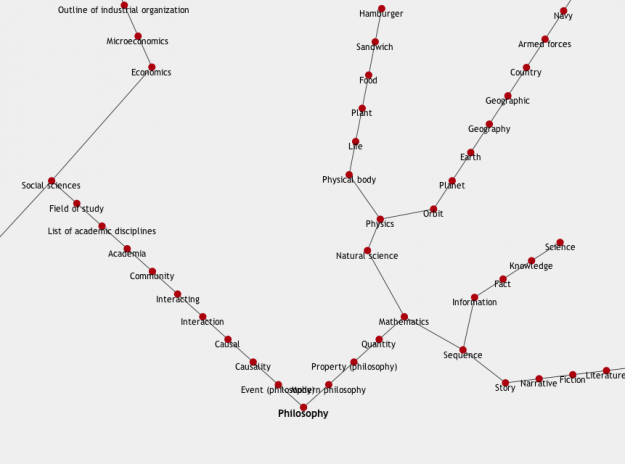In 2001, American writer/philosopher David Foster Wallace wrote a famous review of a dictionary.
Just ponder for a moment how a review of a dictionary might become famous.
It’s one of my favourite essays because while it does what it says on the tin, it also explains huge swathes of disagreement in modern life; it accounts for why so often we talk past one another in disagreements while using the same words.
It’s because the same words mean different things to different people based on an underlying understanding of how words work; what DFW called ‘a usage war’ — we’re seeing the fruits of that war, and most of the time we don’t even realise that’s what happening. He said, of introductory essays published in dictionaries:
“They’re salvos in the Usage Wars that have been” under way ever since editor Philip Gave first sought to apply the value-neutral principles of structural linguistics to lexicography in Webster’s’ Third. Gave’s famous response to conservatives who howled when Webster’s Third endorsed OK and described ain’t as “used orally in most parts of the U.S. by many cultivated speakers [sic}” was this: “A dictionary should have no traffic with … ‘artificial notion of correctness or superiority. It should be descriptive and not prescriptive.” These terms stuck and turned epithetic, and linguistic conservatives are now formally known as Prescriptivists and linguistic liberals as Descriptivists.
In one sense the war between prescriptivists and descriptivists is a war between objectivity and subjectivity; modernity and post-modernity; or conservatives and progressives. On the one hand are those who think words necessarily have an objective meaning, dictated by their ability to describe an actual thing, and only ever that thing. The meaning is fixed etymologically. Dictionaries tell you what a word actually means. On the other hand, there are those who think words are subjective; that our words are always analogies coming from our perspective attempting to describe reality in intelligible ways, but always limited — and also contested and subject to change, and meaning is dictated by usage. Particularly how the user conceives of the meaning of the word; but also how that word is understood in particular interpretive communities — and we must be mindful of that context, not just etymology.
I might be a nerd; but it fascinates me that this approach to language actually, fundamentally, plays out in disputes across those trenches — between modernists and post-modernists, and conservatives and progressives (and post-modern conservatives and modernist conservatives and post-modern progressives and modernist progressives). There are often things at stake in the definition of these words and how they’re used too; take a couple of examples; there’s currently a debate being waged within the LGBTIQA+ community, and within the feminist community (as much as those can be monolithic communities) about the meaning of words. Those communities are typically progressive (in many ways that we would understand that word). And yet, traditional feminists fought very hard for the word ‘woman’ to mean a particular thing; they’re now labelled as “Trans Exclusionary Radical Feminists” (TERFs), because they won’t broaden the label to mean something new — to assign the label based on a constructed gender identity, rather than an objectively observable biological reality (anatomical sex), even while recognising that gender is constructed. For members of the LGBTIQA+ community this same issue plays out for, say, gay men, who have lobbied for the recognition of their rights to love other men, only for the meaning of the word ‘men’ to also be contested. The contest is a language usage war.
I tend to be a descriptivist, because I think that better reflects the reality of how language is used, though deep down I’d prefer a more prescriptive approach to words and meaning. But this means we have to be careful, as individuals, when engaging in discussions, to notice not just what others are saying but how others are using words. It’s very easy to insist that other people are using words the way we believe they should be using them, and then crucify them, rather than entering the contest of meaning for words or terminology by bringing a broadened perspective, or arguing for a particular manner of usage.
One person responded to my last post about ‘toxic churchianity’ by saying I’d lost his interest in what I had to say by using the phrase ‘toxic masculinity.’ He suggested there is no such thing as ‘toxic masculinity’ — there’s just the objectively positive good that is masculinity and anything else is actually not masculinity. This was a ‘prescriptive’ approach to language, that doesn’t grapple with a larger cultural conversation around what the meaning of ‘masculinity’ is, and where some proffered definitions might sometimes need contesting and qualifying to distinguish them from others; I’m comfortable entering that contest for meaning, and that conversation, because of how I think language works.
For a prescriptivist, language is ‘ontological;’ to name something is to describe it as it really is prescriptively, on every occasion. A word means what it means. This is a lot of weight for language to bear; and it limits the creative/artistic/poetic use of language where we can use words to create things that are not. This has interesting implications for how we exegete the Bible too — if words always mean what they etymologically mean in a prescriptive, technical, dictionary sense then we are assuming a certain sort of approach to writing from the authors of Scripture (a modernist one). This ontological thing is at play in a debate currently taking place within the conservative church, in a similar way to the debate playing out in the progressive communities described above. There’s a debate about how Christians who experience same sex attraction should describe themselves; and whether they should use the label gay. This debate, from a conservative prescriptive perspective is a no brainer; because to use the word ‘gay’ is an ontological claim about who a person is; and in Christ, one’s identity is transformed. In that theory of language, it makes no sense to use the label gay. But here’s why I’m not convinced by that argument; I don’t think language works that way, or that this is the claim being made by those people who use the label gay while pursuing a traditional Biblical sexual ethic. When you listen carefully to these brothers and sisters they say they use the label to describe their experience; or story. It’s not an ontological claim in terms of being an objective fixed reality (though I do think ontology/personhood/identity actually works narratively, not simply as a fixed objective reality too; I think a materialist, objective, ontology is a modern construct that we often impose on ancient texts, like Genesis, where ontology there is more relational and functional, and connected to a narrative — so my approach to language is theological, but this is circular, and prescriptivists would say the same thing about their exegesis, their theology, and their approach to languge). If we insist that words work a particular way; if there was no contest; then I think one camp in this debate could insist that the other use words in a particular, objectively correct, way. But I don’t think there’s much space for Christians, especially english speaking Christians, to insist things like that — because as people reading translations of texts from ancient languages, where the complexity of language has to be part of the fabric of how a translation is produced, we know we are experiencing the subjectivity of language as we read the Bible and dig into the Greek or Hebrew to find the semantic range of a word. We read a Bible that has puns, and deliberate ambiguity, and word play built in because words do not always have objective fixed meanings. Also, on the belief that words and labels function ‘ontologically’ and in prescriptive rather than descriptive ways; and the idea that a Christian cannot identify (ontologically) with their sin as though that is a prescriptive reality; someone ought to tell the writers of the New Testament who refer to Rahab as “Rahab the prostitute” and Simon as “Simon the Zealot”— those are descriptions of part of their stories, not a prescriptive ontological claims about them.
Understanding how we use language is important; but the debate is not neutral; adopting a ‘descriptive’ framework — one born to some extent out of post-modernity’s reaction to modernity — is now politically loaded. George Orwell famously noted how political regimes with nefarious intent blur the meaning of language through doublespeak and the creation of very technically correct prescriptive looking language to describe things in particularly opaque (though technically correct) ways; and we see this in modern bureaucracy where ‘public relations’ is used (or “effectively utilised”) to prop up powerful status quos. Progressives (and I don’t mean that pejoratively) want to change the meaning of words through pointing both to the contested nature of understanding, but also to the dubious authorities that gave words their meaning. Sometimes word meanings should be contested; etymology is a useful guide for description and employing words carefully to describe reality as we understand it. DFW notes that descriptivism is the air anyone educated after about the 1970s in the west lives and breathes.
“For one thing, Descriptivism so quickly and thoroughly took over English education in this country that just about everybody who started junior high after c. 1970 has been taught to write Descriptively-via “freewriting,” “brainstorming,” “journaling,” a view of writing as self-exploratory and expressive rather than as communicative, an abandonment of systematic grammar, usage, semantics, rhetoric, etymology. For another thing, the very language in which today’s socialist, feminist, minority, gay, and environmentalist movements frame their sides of political debates is informed by the Descriptivist belief that traditional English is conceived and perpetuated by Privileged WASP Males’? and is thus inherently capitalist, sexist, racist, xenophobic,’ homophobic, elitist: unfair.”
We’re not going to solve this dispute about how words work any time soon, but understanding that the way words and language works is contested might help us listen better to each other in areas of disagreement. It might also help those of us who care about objective truths contend for understandable descriptions of reality.







